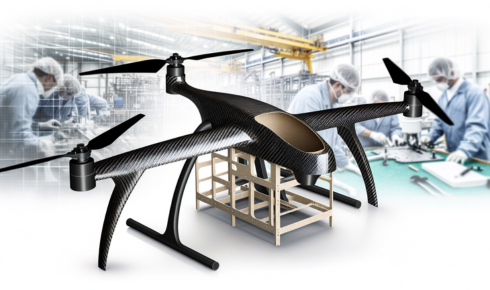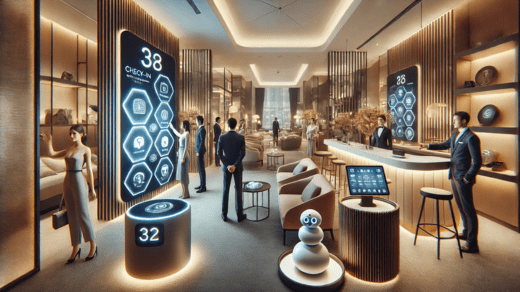The hospitality industry is witnessing a technological renaissance, driven by innovations that aim to enhance guest experiences, streamline operations, and maximize revenue. As hoteliers strive to stay competitive and meet ever-evolving guest expectations, the adoption of cutting-edge tech products has become indispensable. Here are some of the most interesting hospitality technology products on the market today that are reshaping the landscape for hotels:
1. AI-Powered Chatbots and Virtual Concierges
AI-driven chatbots and virtual concierges are revolutionizing the way hotels engage with their guests. Tools like Ivy by Go Moment and Zingle by Medallia offer 24/7, real-time assistance, answering guests’ questions, facilitating bookings, and handling service requests seamlessly. These platforms leverage natural language processing to provide responses that feel personalized and human-like. Not only do they enhance guest satisfaction, but they also alleviate the burden on front desk staff, enabling them to focus on higher-value tasks.
2. Smart Room Technology
Smart room solutions, like smart hospitality TVs, are transforming the in-room guest experience through IoT (Internet of Things) integration. Systems like RoomAssistant and Volara Voice Control enable guests to control lighting, temperature, and entertainment using voice commands or mobile apps. These systems can also personalize room settings based on guest preferences, creating a more tailored and comfortable stay. The integration of smart technology not only appeals to tech-savvy travelers, but also contributes to energy efficiency and operational cost savings for hotels.
3. Mobile Check-In and Digital Keys
Contactless technology has become a priority in the post-pandemic world, and mobile check-in solutions, such as OpenKey and Hotek digital key systems, are leading the charge. These platforms allow guests to bypass traditional front desk processes, checking in and accessing their rooms via their smartphones. This enhances convenience and reduces the need for physical interactions, boosting both safety and operational efficiency.
4. Revenue Management Systems (RMS)
Advanced revenue management systems are empowering hotels to optimize pricing strategies and maximize profit. Solutions like IDeaS Revenue Solutions and Duetto use predictive analytics and machine learning to analyze market trends, booking patterns, and competitor rates. These systems help hoteliers make data-driven decisions, dynamically adjust room prices, and create promotions tailored to market demand.
5. Property Management Software (PMS)
Modern PMS platforms, such as Cloudbeds and Mews, have become essential for seamless hotel operations. They integrate various aspects of hotel management, from reservations and housekeeping to billing and reporting, into a single, user-friendly interface. With cloud-based PMS, hotel staff can access crucial data in real-time, allowing for more agile decision-making and improved guest service.
6. Guest Feedback and Reputation Management Tools
Understanding guest feedback is critical for maintaining high service standards and reputation. Platforms like Revinate and TrustYou aggregate guest reviews from multiple channels and provide hoteliers with actionable insights. These tools employ AI to analyze sentiment and identify key trends, enabling hotels to address issues proactively and tailor their services to guest preferences.
7. Robotics and Automation
Robotics is making a bold entry into hospitality, especially in housekeeping and room service. Companies like Savioke and Bear Robotics have introduced delivery robots that can autonomously bring items such as towels, toiletries, or room service meals directly to guests. These innovations not only add a futuristic touch to the guest experience, but also reduce staff workload and allow for more efficient allocation of human resources.
8. Augmented Reality (AR) and Virtual Reality (VR)
Hotels are leveraging AR and VR to enhance their marketing and guest engagement strategies. Owl Vision and Matterport offer virtual tours that allow potential guests to explore rooms, lobbies, and amenities before making a booking. This immersive experience can significantly boost booking conversions and set guest expectations accurately. AR apps can also enhance on-property experiences by providing interactive guides and real-time information about the hotel and nearby attractions.
Conclusion
From AI-driven assistance to immersive AR experiences, these hospitality technology products are not just novelties, but strategic tools that redefine guest interactions and hotel management. Embracing these innovations can position hotels at the forefront of a tech-enabled future, ensuring both guest satisfaction and operational excellence.






